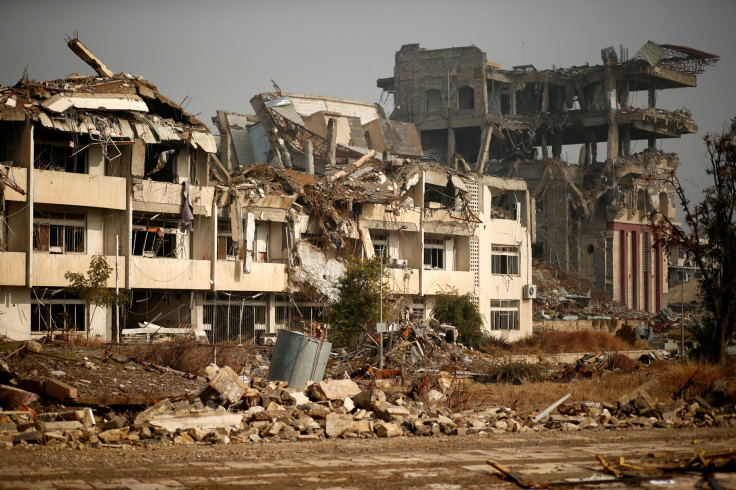US War Against ISIS: Was Intelligence Distorted? Inspector General Reports Bad Management To Blame

The Defense Department Inspector General found Pentagon officials did not force intelligence analysts to skew their findings on the war against the Islamic State group to make things look more positive than they actually were, contradicting a previous investigation by House Republicans.
The report released Wednesday said no “systematic distortion of intelligence” was found despite the beliefs of half of the 82 intelligence analysts interviewed at the Joint Intelligence Center for U.S. Central Command in Tampa, Florida.
The result was the product of two complaints claiming “intelligence products were falsified, delayed or suppressed to make the counter-[ISIS] campaign appear more successful than the intelligence warranted.” The allegations first surfaced in a 2015 letter to the Defense Intelligence Agency Inspector General.
The subsequent investigation involved 30 investigators, 150 interviews and more than 17 million documents, Kathie Scarrah, a spokeswoman for the inspector general, told the Tampa Bay Times.
The inspector general’s report blamed the fast pace of work and management deficiencies for the beliefs intelligence was skewed. The report found Maj. Gen. Steven Grove and his civilian deputy, Gregory Ryckman, "did not fully grasp the extent of the belief" intelligence had been distorted and were not good at communicating with analysts.
“In short, we did not find systematic or intentional distortion of intelligence by … leaders. We also did not conclude that anyone committed misconduct,” the report said. “However, we believe that the intelligence practices related to … intelligence products … could have, and should have, been better, and further improvements can be made.”
The inspector general reviewed numerous draft and final intelligence reports as part of its investigation covering the period from May 2014 to September 2015, along with emails.
The investigators said they understand how the analysts arrived at their erroneous perceptions and why some analysts started self-censoring so their conclusions did not conflict with superiors’ narrative.
An investigation by House Republicans last summer found CentCom assessments were “consistently more positive” than those being produced by other intelligence agencies, Stars & Stripes reported. Democrats, however, said it was unclear whether leaders had pressured analysts.
Army Gen. Joseph Vote, who has been in command of CentCom since March, called the findings in the inspector general’s report helpful.
"While the allegations were unsubstantiated, the ... report did provide thoughtful and helpful recommendations on ways to make improvements within the command and we are taking those and others' recommendations to heart,” he said in a statement.
The report lists 29 recommendations to improve the intelligence process.
© Copyright IBTimes 2024. All rights reserved.






















